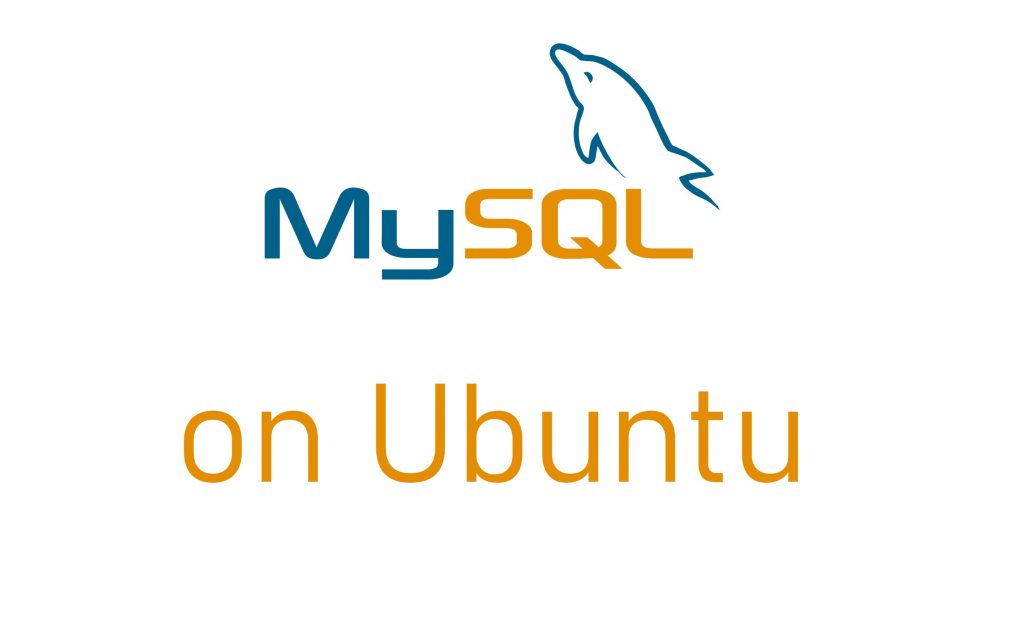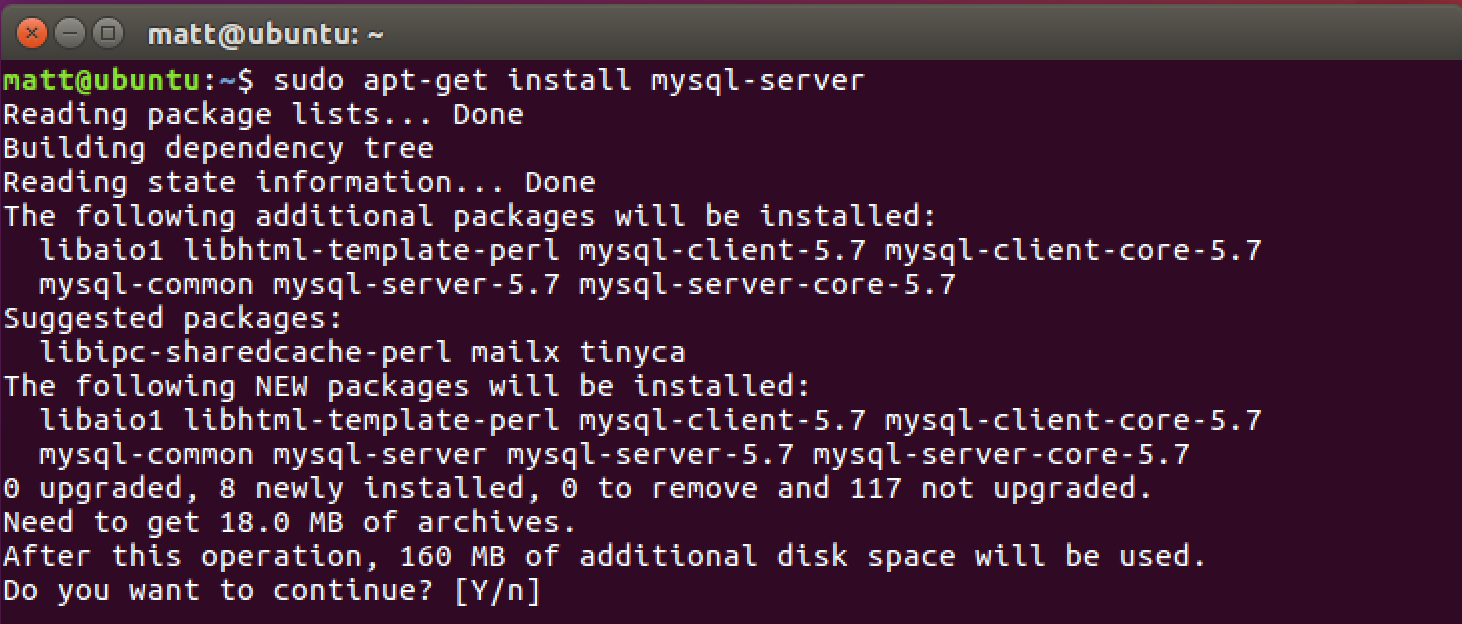

- #COMMANDS TO INSTALL MYSQL IN UBUNTU HOW TO#
- #COMMANDS TO INSTALL MYSQL IN UBUNTU UPDATE#
- #COMMANDS TO INSTALL MYSQL IN UBUNTU UPGRADE#
- #COMMANDS TO INSTALL MYSQL IN UBUNTU SOFTWARE#
The installation process will prompt for the root password to set as default. sudo apt-key adv -keyserver -recv-keys 8C718D3B5072E1F5 Run the following commands to install MySQL on Ubuntu 18.04 system. Your system is ready for the MySQL installation. After that Select, the last line with text Ok and press enter to complete this.

Here you can select MySQL version (8.0 or 5.7) to install on your system. Select the first line as showing in below screenshot and press enter. Sudo dpkg -i mysql-apt-config_0.8.10-1_all.debĭuring the installation of MySQL apt config package. You can download and install the package on your Ubuntu 18.04 system, which will add PPA file to your system. MySQL team provides official MySQL PPA for Ubuntu operating systems.
#COMMANDS TO INSTALL MYSQL IN UBUNTU UPGRADE#
Run below commands to upgrade the current packages to the latest version. Windows users can use Putty or other alternatives applications for SSH connection. Login to your Ubuntu 18.04 system using shell access. This tutorial will help you to install MySQL server on Ubuntu 18.04 Bionic Beaver systems. The MySQL official team provides the Debian packages for MySQL 8 to install on Ubuntu systems. As an assumption MySQL is used by every third website running over the internet. MCQ Practice competitive and technical Multiple Choice Questions and Answers (MCQs) with simple and logical explanations to prepare for tests and interviews.MySQL is the most popular relational database management system. Use SHOW DATABASES command to display all the databases on the current server: $ mysql> show databases It will ask you for the password of the root account. To connect to MySQL server, use this command: $ sudo mysql -u root -p If you find that MySQL server does not start automatically, you can use the following command to start it: $ sudo systemctl start mysqlĪnd start it automatically when the system starts: $ sudo systemctl enable mysql

To check if the MySQL server is running or not, use this command: $ sudo systemctl status mysql

MySQL service is automatically started once it is configured. The fourth question: Reload privilege tables now? (Press y and press Enter.) Step 5: Manage MySQL server via Systemd The third question: Remove test database and access to it? (Press y and press Enter.) The second question: Disallow root login remotely? (Press y and press Enter.) The first question will ask you if you want to delete anonymous users. The system will now ask you a series of questions, and you can set the security of your system based on your answers to these questions. The system will display the strength of the password you provided and will also ask you if you want to continue with the password. The system will then prompt you for the new root password. Enter Y to run the “Validate Password” plugin and you will get the following prompt:Įnter your choice number for the password strength and press Enter. This allows you to set a secure password for the root user depending on the strength of the password you want to choose. The first thing to do is to configure the “Validate Password” plugin. It will provide you some security options that you should choose in order to secure the MySQL server: Run the following command to adjust the security on MySQL server: $ sudo mysql_secure_installation You can check your MySQL installation and also check the version number by running the following command in your terminal: $ mysql -version $ sudo apt-get install mysql-serverĮnter Y then press Enter MySQL will then be installed on your system. Run the following command as sudo in order to install MySQL from the APT repositories.
#COMMANDS TO INSTALL MYSQL IN UBUNTU UPDATE#
Run the following command as sudo to update your local repository index: $ sudo apt-get update
#COMMANDS TO INSTALL MYSQL IN UBUNTU SOFTWARE#
To install the latest available version of a software from the Internet repositories, your local repository must be up to date. MySQL is the most popular open-source DBMS.
#COMMANDS TO INSTALL MYSQL IN UBUNTU HOW TO#
In this tutorial, we are going to see how to install MySQL on Ubuntu.


 0 kommentar(er)
0 kommentar(er)
